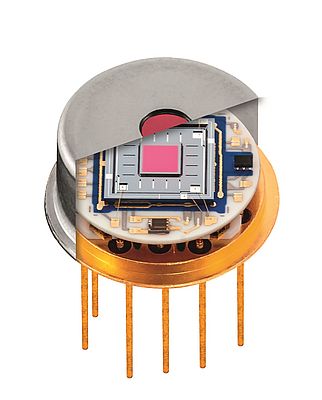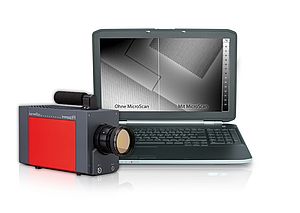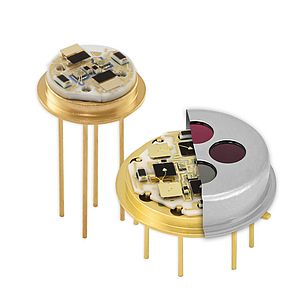Changes in the energy industry have generated a great need for affordable, high-resolution sensors for the measurement of the energy content of natural gas and other fuel gases. At the same time, the demand for more efficient appliances for routine monitoring and leakage detection has also increased. In order to quickly and accurately measure this, a new infrared spectrometric sensor was developed as part of the joint "SIRKO" project, which has significantly improved properties when compared to previous methods. Involved in this development was Dresden-based InfraTec, who will present this detector XFP-3137 at Sensor+Test 2015 for the first time.
The core of the innovation is a tunable micromachined Fabry-Pérot filter (μFPF). By using a higher order of interference, the spectral resolution could be improved from 60 nm to about 25 nm in the wave length range of (3.1 ... 3.7) μm. The dynamics of the filter was significantly improved by optimising the electro-mechanical design and enables scan frequencies of up to 10 Hz. As an additional option the simultaneous measurement of carbon dioxide in the wave length range to 4.3 μm will be possible in the future by using the dual-bandsensor. Infrared spectroscopy is a physical sensing principle to determine gas concentrations accurately, selective and long-term stability. In particular, the accurate and rapid analysis of gas mixtures, such as hydrocarbon gas mixtures or the composition of natural gas, can be carried out using the detectors developed in the project with integrated μFPF. This technology can be used to analyse gas compositions such as hydrocarbon mixtures or the composition of natural gas.
These detectors can not only be used in large power plants, where even small improvementsin the efficiency can bring enormous benefits, but also in cogeneration, natural gas fuel cells and small firingsystems. The name SIRKO stands for "Fast infrared spectrometer for the analysis of hydrocarbons". The joint project was part of an initiative promoted by the initiative "KMU-innovativ: Optische Technologien" by BMBF. Started in early March, 2012, the SIRKO project was successfully completed in February 2015.






















